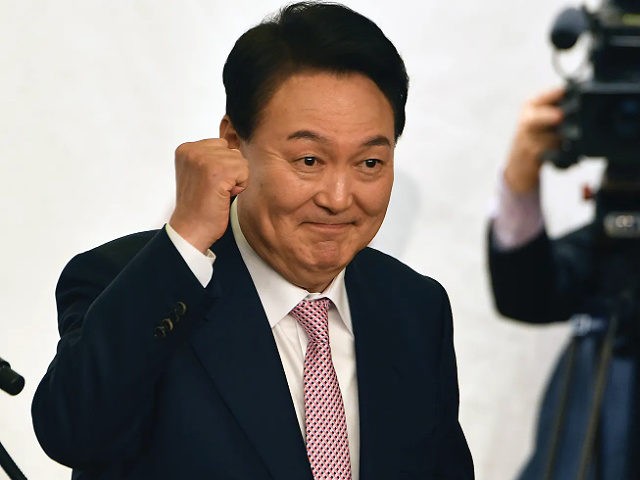The incoming government of South Korean President-elect Yoon Suk-yeol said Thursday it plans to compensate 5.51 million small business owners for losses suffered as a direct result of the previous administration’s punishing business hour curfews, imposed regularly for two years as part of Seoul’s anti-Chinese coronavirus regulations.
Yoon’s transition team chief, Ahn Cheol-soo, announced on April 28 “a 100-day road map that aims to fully compensate the pandemic-hit small business owners,” the Seoul-based Yonhap News Agency reported.
“Ahn said 5.51 million small businesses suffered an estimated 54 trillion won (US$42.4 billion) worth of damage in the past two years due to the pandemic,” Yonhap relayed.
“The exact calculation of damage is the basic of the basics,” Ahn told reporters on Thursday. “I cannot understand why (the current government) has not done it.”
Ahn said the incoming administration of President-elect Yoon plans to provide relief grants to merchants and small business owners “based on the businesses’ size and revenue losses, meaning those who suffered big damages will get larger grants. The maximum amount of the grant has been reportedly set at 6 million won [USD $4,711],” according to Yonhap.
The news agency noted that President-elect Yoon had earlier pledged to give “6 million won each to all small businesses,” meaning his latest financial aid proposal was slightly lower than previously stated.
The left-wing administration of current South Korean President Moon Jae-in was responsible for the strict business hour curfews and related revenue loss that Yoon’s transition team vowed to compensate for on April 28. The federally-mandated policy forced small businesses across South Korea, including cafes and restaurants, to close by 9:00 p.m. each night during regular intervals over the past 24 months. The mandate, combined with limits on the numbers of patrons allowed inside restaurants, was hugely unpopular and sparked several protests against the curfews by small business owners nationwide throughout the pandemic, most recently in January.
“Protesting business owners did not accept customers after the 9 p.m. curfew but left their empty stores and neon signs ablaze with light well past midnight,” Yonhap observed on January 7 of a “lighting protest” in Seoul.
“This is an expression of our will and wish to stay open and do business,” Cho Ji-hyun told Yonhap at the time.
Cho said he represented “an emergency association of small business hit by COVID-19 [Chinese coronavirus]” in South Korea.
The conservative Yoon Suk-yeol will take office as South Korea’s president on May 10. Yoon’s transition team announced on April 19 that it greatly expanded Yoon’s presidential inauguration ceremony guestlist in direct response to South Korea’s federal government dropping nearly all pandemic-related social distancing restrictions on April 18.
“Some 41,000 people are expected to attend the ceremony, including political leaders [and] citizens,” Yoon’s transition team told reporters on April 19, noting an inaugural ceremony committee overseeing the event “had earlier planned to invite around 10,000 people in line with earlier COVID-19 guidelines.”
Yoon served as South Korea’s prosecutor general from July 2019 to March 2021 under current South Korean President Moon Jae-in. Moon leads South Korea’s left-wing Democratic Party of Korea (DPK), while Yoon represents South Korea’s right-wing, opposition People Power Party (PPP).

COMMENTS
Please let us know if you're having issues with commenting.